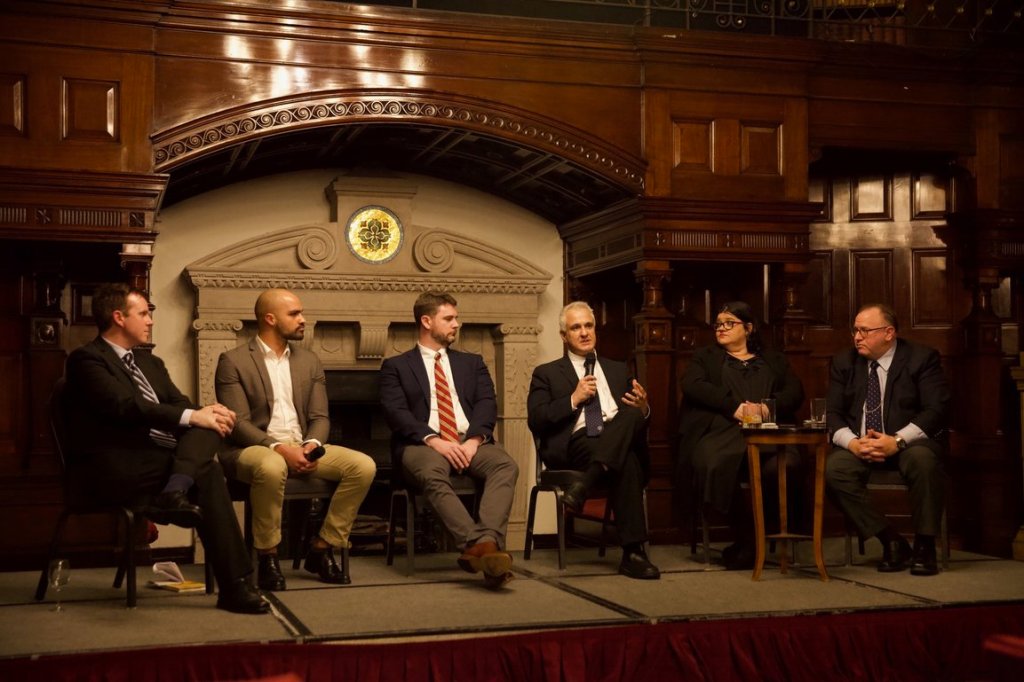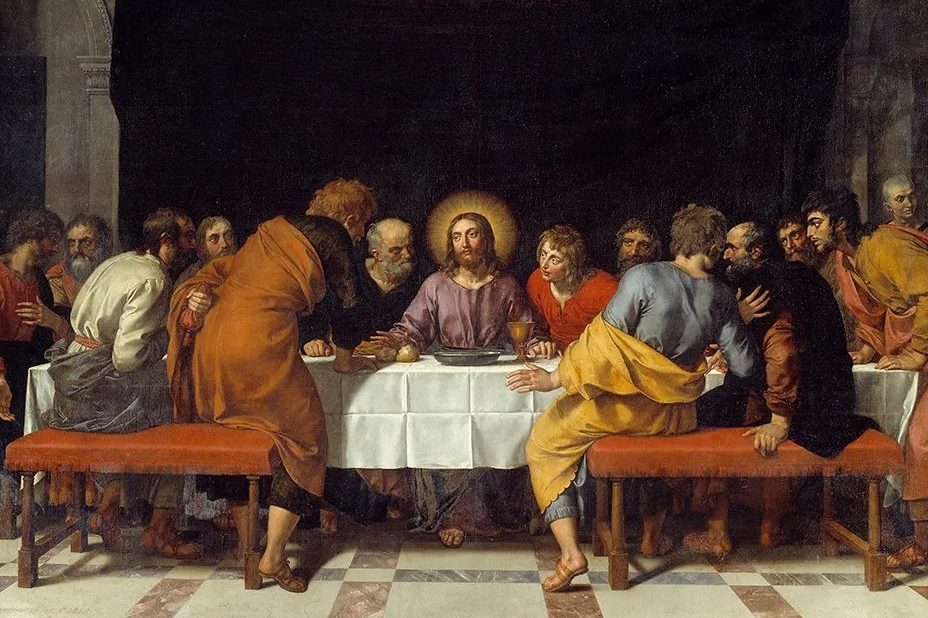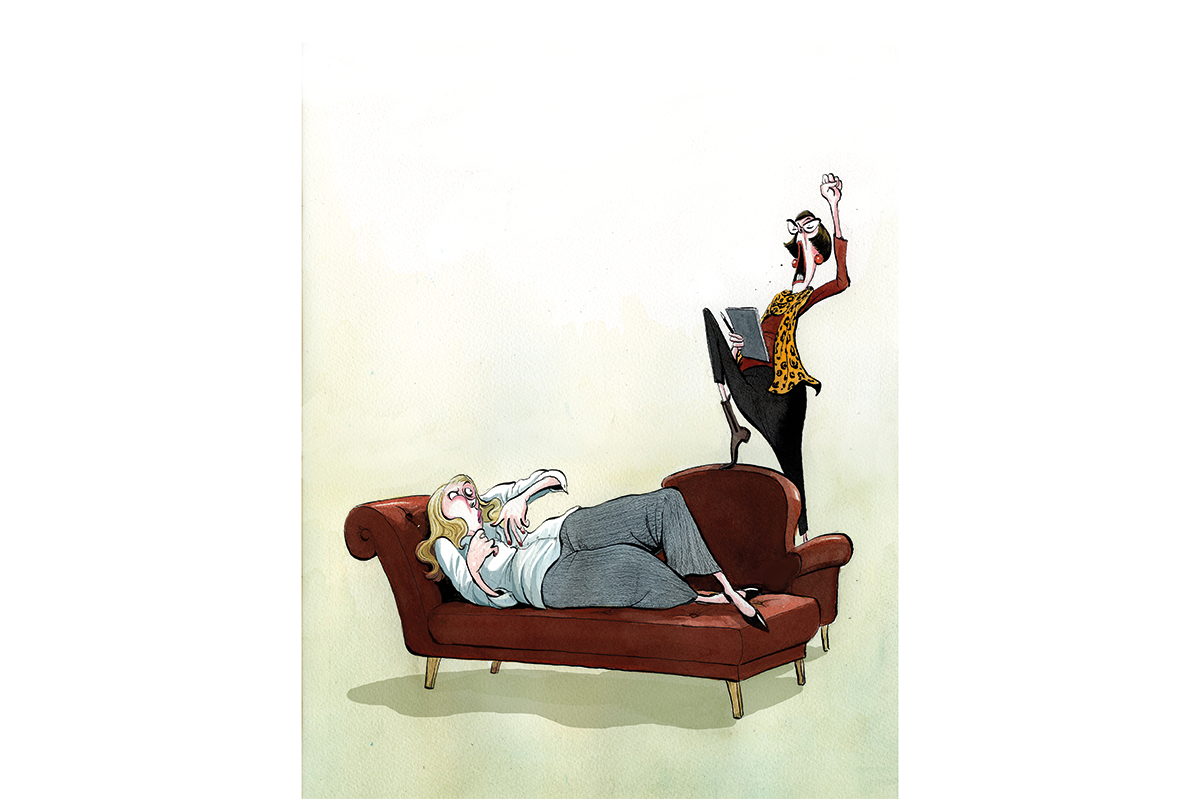The setting was the Gladstone Library, a dramatic, imposing room named after one of Britain’s most cherished politicians, though on closer inspection, its grandeur was somewhat faded. Ornate faïence-tiled columns held up lofty, sculpted ceilings punctuated with chandeliers above mahogany shelves along the room’s perimeter lined with faithful replicas of the 30,000 volumes spanning 17th- to 20th-century political material now safely housed at the University of Bristol.
In many ways, this staid, cavernous hall filled with ersatz books at the very heart of the National Liberal Club established by William Gladstone himself is the perfect metaphor for the state of liberalism today. Which brings us to why an unlikely crew of atheists, secularists and evangelical Christians were gathered here on a balmy Sunday October morning. Instead of bedlam, there was unity and congeniality. At stake, it seemed, was the complete takedown of liberalism and, with it, Western civilization.
The conference, organized by Sovereign Nations and titled ‘Speaking Truth to Social Justice,’ featured the masterminds behind the so-called ‘Sokal Squared’ scandal: Helen Pluckrose, Peter Boghossian, and James A. Lindsay. Its name is a nod to an earlier hoax, which parodied the extreme postmodernist criticism of science, perpetuated by physicist Alan Sokal, who graced the occasion with his presence. Last year, the three current and former academics, who are prominent speakers in atheist and humanist circles, published bogus research papers in several academic disciplines — gender studies, queer theory, critical race theory, intersectional feminism, fat studies and postcolonial theory — to highlight the charlatanism and obscurantism that stand in for scholarship, the lack of academic rigor and flaws in the publishing protocols of these fields. Some of the hoax papers they submitted border on outright hilarity. One published paper suggested that dog parks perpetuate ‘canine rape culture’ while another was basically Mein Kampf dressed up in intersectional feminist lingo. The trio popularized the term ‘grievance studies’ to refer to these fields because, according to Pluckrose, they begin ‘from the assumption of a grievance’ and then bend ‘theories to confirm it.’
They found in Michael O’Fallon, the evangelical Christian founder and editor-in-chief of Sovereign Nations, an ally who is likewise deeply concerned about our postmodern era in which ‘grand narratives that have guided our discourse are collapsing.’ What he fears is the encroachment of the secular theoretical perspectives that undergird social justice upon the gospel and the church, weaponizing identity to upend the Christian interpretation of doctrine.
And so an unholy alliance between a bunch of atheists and evangelical Christians was born. Having the inaugural conference dedicated to defending liberalism in a venue named after the ‘Grand Old Man’ of liberalism could not have been more symbolic. William Ewart Gladstone was a four-term British prime minister whose political doctrine centered around ‘peace, economy and reform.’ He instituted laissez-faire economic policies and free trade, extended voting rights, promoted equality of opportunity and self-governance of Britain’s colonies and disestablished the Church of Ireland (so that Roman Catholics no longer had to pay tithes to support the Anglican Church), among other reforms, and was an early if ultimately unsuccessful advocate for ‘Home Rule’ for Ireland.
Deeply religious with an evangelical sensibility, Gladstone served under Queen Victoria in a society shaken up by the publication of Charles Darwin’s On the Origin of Species, in which the theory of natural selection was pitted against the reigning theory of creation in an epistemological zero-sum game. The Victorian age might have been characterized by an ever-widening rift between science and religion, but it was during this time, in the grand quarters of the Gladstone Library, that two unlikely members of the National Liberal Club met and bonded: George Bernard Shaw, the Irish atheist playwright and polemicist, and G.K. Chesterton, the English writer and theologian whose work in Christian apologetics needs no introduction. These two men of great stature often engaged in intellectual sparring, but they were also friends, each recognizing in the other a common humanity through jokes and banter and harboring a respect for the other’s colossal genius.
Today, this state of affairs between two such people holding diametrically opposed views seems almost quaint. Both O’Fallon and the grievance studies authors have come to realize that the post-Victorian culture war is no longer about metaphysics, the supernatural realm or miracles. They have come together to defend what Boghossian calls the ‘rules of engagement’ and cognitive liberty, the very forces that enabled the warm friendship between Shaw and Chesterton despite their occupying antagonistic sides of an ideological axis.
Principled-based rules of engagement create an environment in which dialogue can be fostered and cultivate a culture that values freedom of speech and dialectics that eschew ad hominem attacks and mischaracterization. They begin with, according to James Lindsay, ‘putting forth the best arguments from opposing and differing sides in the best-possible faith, and seeking understanding and communication across divides.’ To him, this is the way to preserve all that is good and effective about free liberal societies that tolerate and welcome differences of opinion. Those societies seem to be under threat, given recent headlines about the rise of cancel culture and public debates about the moral validity of punching Nazis and hurling milkshakes at people with whom we disagree.
According to Boghossian, the fault lines in Culture War 2.0 center around the correspondence theory of truth and the role that intersectionality ought to play into our worldview. The correspondence theory of truth states that that there is a ‘truth’ and that our beliefs correspond to a stable, knowable world. Intersectionality is the idea that there are intersecting identities that comprise one’s identity (e.g., lesbian, white, disabled, etc.) that contribute to a framework of power dynamics and moral hierarchy. Much of social justice ideology and activism is predicated on intersectionality and standpoint epistemology, which in contrast to the correspondence theory states that it is one’s position in a system that determines what’s true. A liberal atheist, Boghossian says that ‘if the conservative Christians at the conference believe Jesus walked on water (that either is or is not true for everyone regardless of one’s race or gender) and they value discourse and adhere to basic rules of engagement, then they are closer to my worldview than an atheist who’s adopted intersectionality and does not adhere to the rules of engagement.’
These views are causing a schism in every walk of life, from knitting clubs to religious organizations. It’s ripping apart Christianity as the church grapples with what O’Fallon has characterized as a postmodern crisis. Intersectional Christians believe one must examine scripture through an intersectional lens and have adopted tactics from their secular counterparts to protect these ideas from scrutiny.
The deeper problem is that wherever intersectionality goes, cognitive liberty is lost. One can no longer pursue truth and seek it for oneself; one must subscribe to the new secular dogma of intersectionality or risk being labeled a heretic or blasphemer. And there are a multitude of speech and thought-policing mechanisms to assure that intersectionality takes root: Bias Response Teams, political correctness, Offices of Diversity and Inclusion, safe spaces, trigger warnings, etc. Taboos and stigma attached to running afoul of the moral orthodoxy eliminate the rhetorical space that allows these ideas to be critiqued, further entrenching the moral orthodoxy itself. The evening was perfectly capped off with an appearance by Andrew Doyle, the columnist and comic behind the woke parody Twitter account Titania McGrath. Doyle’s satire has been so on-point that on a few occasions, Titania’s feed has been more prophetic than parody.
When the Sovereign Nations conference was first announced, Richard Dawkins signal boosted it on Twitter, only to be dogpiled by critics accusing the ‘new atheists’ of aligning themselves with right-wing Christian fundamentalists. The grievance studies authors had to contend with myriad charges of ‘grifting,’ an overused slur virtually impossible to dispute. Calling someone a ‘grifter’ — accusing one of holding a point of view that violates one’s own conscience simply for profit motives — effectively delegitimizes that person’s sincerely held views. Unless you’re a mind-reader, there is no way to prove it. Eventually, the mob won and Dawkins deleted his tweet.
When asked what the goals of this new venture are, the organizers and speakers asserted that they share a vision of growing a movement that tries to clarify what ‘social justice’ is about and offers alternatives that don’t rely upon postmodernist ideology to address issues of social inequality and other grievances. By design, the movement should be apolitical and encourage the breaking down of barriers that prevent meaningful dialogue across divides (mostly via guilt by association), fostering free and open dialogue even with people with whom we have substantive disagreements.
Boghossian and Lindsay have gone a step further and written a how-to-manual titled How to Have Impossible Conversations, a guide through conversational techniques necessary to talk about the wedge issues du jour: climate change, religious faith, poverty, immigration, gun control, etc. Almost a century ago, Shaw and Chesterton took part in the kind of public debate that exemplifies an impossible conversation — it just happened at a time and in a climate that made it possible.
It is this spirit that these evangelicals and atheists are fighting to restore. Faith or no faith is no longer the dividing line here. Bad faith is. And you don’t need to be religious to argue in bad faith.

























